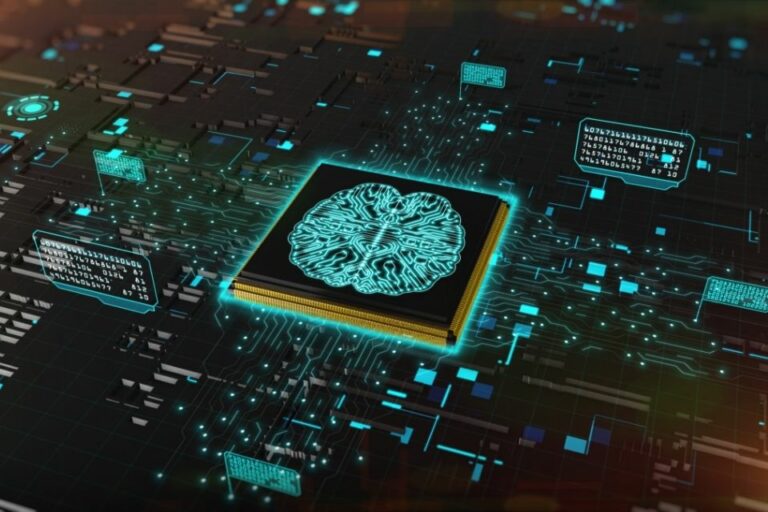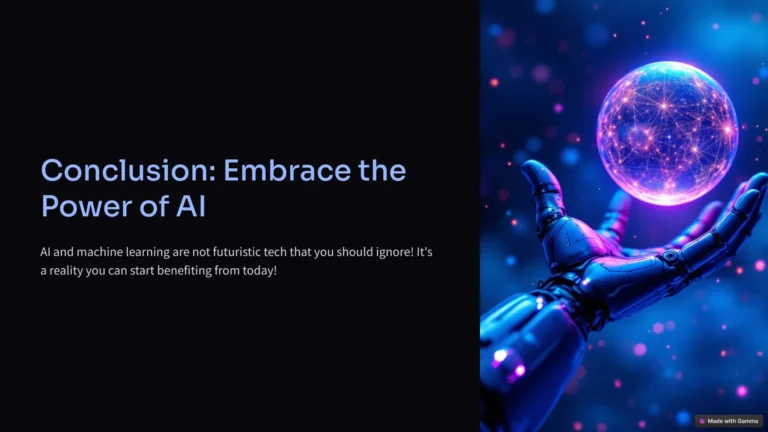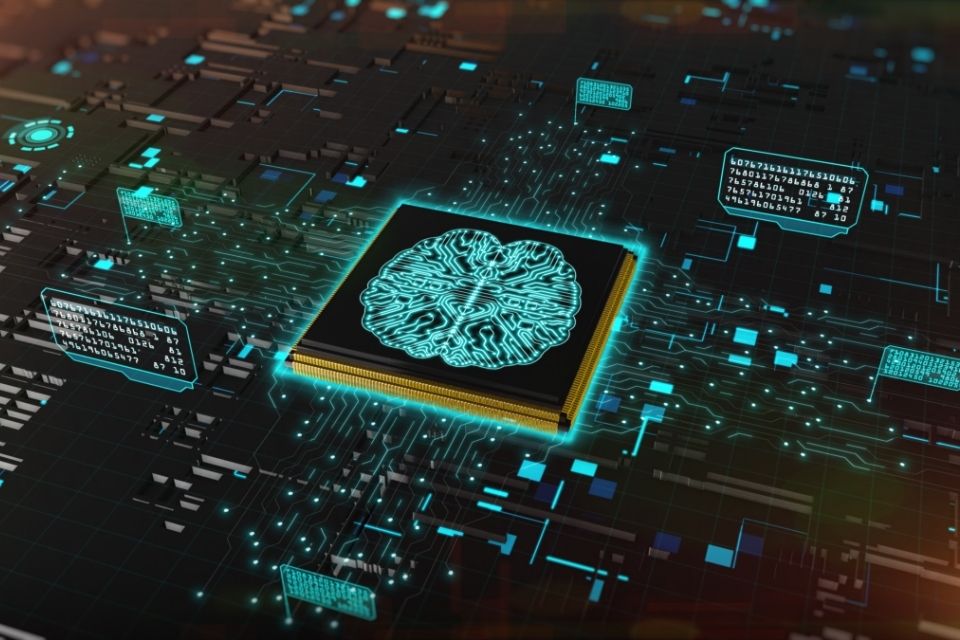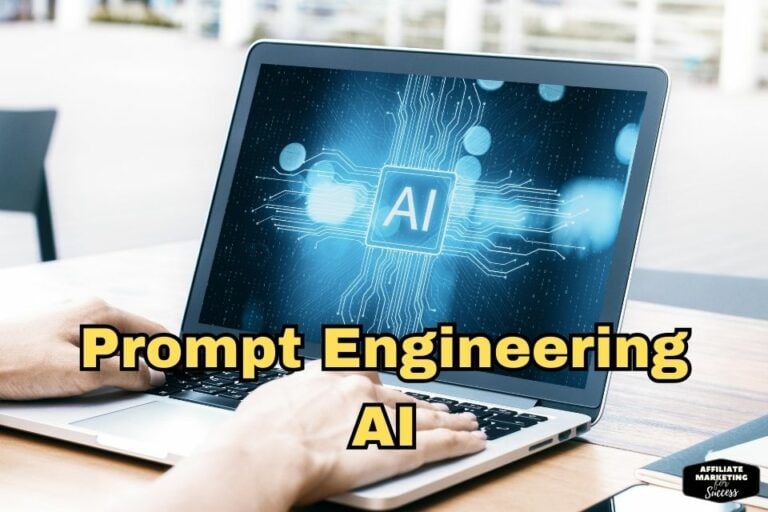IBM AI: 9 Powerful Ways It Transforms Industries (2025)
In today’s fast-paced world, industries are constantly seeking innovative solutions that can help them stay ahead of the competition. IBM AI is one such solution that is revolutionizing the way businesses operate.
With its cognitive computing capabilities, IBM AI is transforming industries across the globe. The power of IBM AI lies in its ability to learn, reason and understand natural language.
From healthcare to finance, retail to manufacturing, energy to transportation and education – IBM AI has been making a significant impact across multiple industries. By providing organizations with valuable insights and predictions based on large volumes of data, IBM AI is helping them make informed decisions and drive growth.
In this article, we will explore how IBM AI is transforming various industries and what the future holds for this cutting-edge technology.
Key Takeaways

- IBM’s AI solutions have the ability to learn, reason, and understand natural language, providing valuable insights and predictions based on large volumes of data.
- AI-powered diagnostics in healthcare are providing doctors with unprecedented insights into patient care, leading to more personalized care for patients.
- AI is playing a critical role in fraud detection and enabling faster, more informed investment decisions in finance.
- AI is revolutionizing industries such as retail, manufacturing, agriculture, energy, transportation, and education, but ethical considerations must be taken into account when implementing cognitive computing solutions.
Understanding Cognitive Computing
You’ll be amazed at how cognitive computing can process vast amounts of data and learn from it just like a human brain. This revolutionary technology is transforming the way industries operate by providing smart solutions that can understand, reason, and learn with minimal human intervention.
Some applications of cognitive computing include natural language processing, image recognition, and decision-making based on complex data sets. However, it’s important to note that there are limitations to cognitive computing systems. They may not always be able to accurately interpret human emotions or contextual nuances in language. Additionally, ethical considerations must be taken into account when implementing these systems.
As we move forward in exploring the potential of this technology, let’s delve deeper into how it’s being used in the healthcare industry.
Healthcare Industry
Your healthcare experience is about to get a whole lot smarter with the power of advanced technology at your fingertips. Healthcare analytics and AI powered diagnostics are changing the game, providing doctors with unprecedented insights into patient care. With the help of cognitive computing solutions like IBM Watson Health, medical practitioners can analyze vast amounts of data in real-time and gain a deeper understanding of patient needs.
But it’s not just doctors who benefit from this technology – patients themselves have access to more personalized care than ever before. By leveraging patient data and machine learning algorithms, healthcare providers can tailor treatment plans to individual patients, improving outcomes and reducing costs. As you look towards the future of healthcare, know that AI-powered tools will continue to transform the industry in ways we can’t even imagine yet.
As we move on to discuss the finance industry, it’s important to note that cognitive computing solutions have far-reaching applications beyond just healthcare.
Finance Industry
Get ready to experience a whole new level of financial services with the latest advancements in technology. IBM AI is transforming the finance industry by enabling banks and other financial institutions to make faster, more informed investment decisions. With AI-powered algorithms that analyze market trends and predict future outcomes, investors can make data-driven decisions instead of relying on human intuition.
But AI isn’t just helping investors make better decisions; it’s also playing a critical role in fraud detection in the finance industry. By analyzing large datasets and identifying patterns that could indicate fraudulent activity, AI-powered systems are able to detect fraud more quickly and accurately than ever before. This not only protects consumers from financial losses but also helps maintain trust in the financial system as a whole.
As we move into the next section about the retail industry, it’s important to note how AI is changing customer experiences across all industries.
Retail Industry
You’re about to explore the ways in which AI is transforming the retail industry.
With personalized shopping experiences, inventory management, and customer insights, retailers are able to provide a seamless and efficient experience for their customers.
Using cognitive computing solutions, retailers can analyze customer data to gain insights into buying behaviors and preferences, ultimately improving the overall shopping experience.
Personalized Shopping Experience
By leveraging artificial intelligence, retailers can create a shopping experience tailored to each customer’s unique preferences and needs. AI-powered recommendation engines analyze customer behavior data to provide personalized product recommendations that increase the likelihood of purchase. These engines use machine learning algorithms to continuously improve their suggestions, taking into account factors such as previous purchases, browsing history, and even social media activity.
Personalized shopping experiences not only benefit the consumer but also the retailer. By providing a seamless and enjoyable shopping journey, customers are more likely to become loyal patrons of a brand. This, in turn, increases sales revenue and drives business growth.
However, in order for retailers to successfully implement these AI solutions, they must also have efficient inventory management systems in place.
Inventory Management
Oh, great, another thing to worry about – managing your inventory. As a business owner, you’ll find keeping track of your stock to be a daunting task. However, with IBM AI’s automated tracking and real-time updates for inventory management, you can take control of your inventory and streamline your operations.
Here’s how IBM AI can help transform the way you manage your inventory:
- Utilize predictive analytics to forecast demand and optimize stock levels
- Monitor inventory levels in real-time and receive alerts when items are running low
- Implement an automated replenishment system for easy restocking
- Improve accuracy and speed of order fulfillment with up-to-date information on available stock
With these innovative solutions from IBM AI, you’ll have peace of mind knowing that your inventory is being managed efficiently. Plus, freeing up time spent on manual tracking allows you to focus on other aspects of growing your business.
And speaking of growth, let’s move onto the next section about customer insights.
Customer Insights
Get ready to understand your customers like never before with the power of IBM’s AI technology. With data analysis and market research, you can gain a deeper understanding of your customers’ needs and preferences. By leveraging these insights, you can tailor your products and services to meet their specific demands, ultimately boosting customer satisfaction and loyalty.
IBM’s AI technology allows for advanced customer segmentation, helping you identify which groups of customers are most valuable to your business. This information enables you to target marketing campaigns more effectively and develop personalized promotions that resonate with each individual customer.
By incorporating these insights into your decision-making processes, you can enhance the overall customer experience and stay ahead of competitors in an increasingly competitive marketplace. Moving forward, let’s take a closer look at how IBM’s cognitive computing solutions are transforming the manufacturing industry.
Manufacturing Industry
The manufacturing industry has faced significant challenges in recent years, with rising costs, increasing competition, and a changing global market. However, smart factories powered by AI are helping to revolutionize the sector. Here are three ways cognitive computing solutions are transforming manufacturing:
- Predictive maintenance: AI-powered machines can monitor themselves and predict when they need maintenance before they break down. This reduces downtime and saves manufacturers money on repairs.
- Quality control: AI can analyze data from sensors and cameras to detect defects in products as they move through the production line. This helps manufacturers catch problems early on and ensure that every product meets quality standards.
- Supply chain optimization: By analyzing data from suppliers, transportation companies, and other sources, AI can help manufacturers optimize their supply chains for efficiency and cost savings.
As the manufacturing industry continues to evolve with the help of AI solutions, it’s clear that these technologies will play a critical role in driving innovation, improving productivity, and delivering greater value to customers.
Now let’s take a look at how cognitive computing is transforming another key sector: agriculture.
Agriculture Industry
Farmers are reaping the benefits of advanced technology that’s revolutionizing the way crops are grown and harvested. With smart farming techniques, farmers can now monitor their crops remotely using sensors, drones, and other crop monitoring technologies. These technologies enable them to make data-driven decisions about irrigation, fertilization, pest control, and other critical factors that affect crop yield and quality.
Advancements in cognitive computing have also enabled farmers to use predictive analytics to anticipate weather patterns and potential crop diseases before they occur. This allows them to take preemptive measures to protect their crops from damage or loss.
As a result, farmers can optimize their yields while minimizing waste and reducing their environmental impact. The agriculture industry is just one example of how IBM AI is transforming industries through cognitive computing solutions.
The next section will explore how IBM AI is driving innovation in the energy industry.
Energy Industry

You might not realize it, but the energy industry is being revolutionized by advanced technology that is changing the way we produce and consume energy. One of these technological advancements is the use of Smart Grids, which are intelligent electrical grids that can monitor and control power flows to meet the needs of consumers more efficiently. With this technology, utilities can reduce waste and better manage renewable energy sources like wind and solar power.
Speaking of renewable energy, IBM AI solutions have also been instrumental in advancing this sector of the energy industry. By using cognitive computing technologies like machine learning algorithms, researchers have been able to better predict weather patterns and optimize renewable energy production accordingly. This has allowed for greater efficiency in producing clean energy while reducing costs associated with fossil fuel consumption.
As we continue to shift towards a more sustainable future, it’s exciting to see how IBM AI will continue to transform the energy industry through innovative solutions for smarter grids and cleaner sources of power.
With all these advancements in mind, it’s important to note that transportation is another industry poised for transformation through cognitive computing solutions – one that affects us all on a daily basis as we move from place to place.
Transportation Industry
As you hit the road, it’s clear that the transportation industry is undergoing a major transformation. With the advent of autonomous vehicles and smart transportation systems, we are witnessing a new era of travel that promises to revolutionize the way we move from point A to point B.
To give you an idea of just how transformative these technologies can be, consider the following list:
- Autonomous vehicles can reduce traffic accidents and fatalities by eliminating human error.
- Smart transportation systems can optimize traffic flow and reduce congestion on our roads and highways.
- These technologies can also help reduce emissions and improve air quality in our cities.
- Ultimately, they promise to make travel more convenient, efficient, and enjoyable for everyone.
The possibilities are truly endless when it comes to the future of transportation.
But before we get ahead of ourselves, let’s take a look at how IBM AI is already helping to transform another industry: education.
Education Industry
You’re about to delve into the exciting world of the Education Industry, where personalized learning, intelligent tutoring systems, and student engagement are key components.
With AI technology rapidly advancing, educational institutions have a unique opportunity to tailor their teaching methods to suit individual students’ needs through personalized learning.
Intelligent tutoring systems can also assist in this process by providing real-time feedback and support throughout the learning journey.
Lastly, student engagement is crucial for effective education delivery and AI solutions can help educators optimize their approach to keep students motivated and focused.
Personalized Learning
When it comes to personalized learning, AI technology can help create custom-tailored educational experiences for each individual student. Adaptive technology and personalized assessments are just two of the many ways that IBM is transforming the education industry with cognitive computing solutions. Through machine learning algorithms, data analytics, and natural language processing, AI-powered systems can analyze a student’s strengths and weaknesses to provide real-time feedback and adjust coursework accordingly.
To give you an idea of how this works in practice, let’s take a look at an example from Knewton, an edtech company that uses AI to personalize learning experiences. In the table below, you can see how Knewton’s adaptive technology assesses a student’s knowledge level on various math concepts and adjusts their coursework accordingly. By using AI to personalize learning in this way, students are able to learn at their own pace and receive targeted support where they need it most. As we move into the next section about intelligent tutoring systems, we’ll explore even more possibilities for how AI can transform education as we know it.
| Math Concept | Student Knowledge Level | Coursework |
|---|---|---|
| Algebra | Intermediate | Advanced |
| Geometry | Beginner | Intermediate |
| Trigonometry | Advanced | Review |
Intelligent Tutoring Systems
Now that you’ve learned about personalized learning, let’s delve deeper into how IBM AI is transforming the education industry through intelligent tutoring systems.
Adaptive learning is an essential element of this technology, providing students with individualized instruction and feedback based on their unique strengths and weaknesses.
Virtual assistants, powered by cognitive computing solutions, can offer real-time support to students as they work through problems, making the learning process more efficient and effective than ever before.
Intelligent tutoring systems are designed to mimic the experience of having a personal tutor, but with the added benefits of automation and scalability.
These systems leverage data analytics and machine learning algorithms to analyze student performance and provide targeted interventions.
By continually adapting to each student’s needs, these systems can help learners overcome obstacles and reach their full potential.
With IBM AI at the forefront of this technology, we can expect significant advancements in student outcomes in the years to come.
As we’ve seen, intelligent tutoring systems have enormous potential for revolutionizing education as we know it.
But what good is all this cutting-edge tech if students aren’t engaged?
In the next section, we’ll explore how IBM AI addresses this critical issue by providing engaging experiences that inspire curiosity and motivation in learners like you.
Student Engagement
Get ready to experience an exciting learning journey with interactive teaching tools and engaging activities that’ll make you eager to learn more. With the advent of Virtual Classrooms, students can now attend classes from anywhere in the world while still experiencing a fully immersive learning environment.
Here are four ways in which Interactive Teaching and Virtual Classrooms are transforming Student Engagement:
- Personalized Learning: No two students are alike, and with Interactive Teaching, each student’s learning journey is tailored to their individual needs. This approach fosters greater engagement as it ensures that students are only presented with material that’s relevant to them.
- Collaborative Learning: The days of sitting alone in a classroom are over. With Virtual Classrooms, students can collaborate on projects and assignments with peers from around the world, fostering an environment of teamwork and innovation.
- Better Feedback: Interactive Teaching allows for real-time feedback, enabling teachers to provide immediate support when needed. This level of personal attention helps keep students engaged while also fostering a sense of accountability for their own learning.
- Gamification: By incorporating game-like elements into the learning process, such as quizzes or challenges, Interactive Teaching makes education fun and engaging.
As IBM AI continues to revolutionize the way we teach and learn, it’s clear that these developments will have far-reaching implications for both educators and learners alike. So let’s take a look at what the future holds for IBM AI!
Future of IBM AI

The horizon is ablaze with possibilities as IBM’s AI continues to evolve and shape the future of industries. The impact on the job market has been a major topic of concern for many, but it’s important to note that AI will not necessarily replace human workers, but rather enhance their capabilities.
By automating routine tasks, humans can focus on more complex and creative work that requires critical thinking and problem-solving skills. However, ethical considerations must also be taken into account as AI becomes more integrated into our daily lives.
Transparency in decision-making processes and data privacy are just a few of the issues that must be addressed. IBM is committed to ensuring that their AI solutions are developed with these considerations in mind, working towards building trust between humans and machines.
As the future unfolds, IBM AI will continue to push boundaries and transform industries while keeping an eye towards responsible innovation.
Frequently Asked Questions
How does IBM’s cognitive computing solution differ from traditional artificial intelligence?
You may have heard of traditional AI, but IBM’s cognitive computing solution goes beyond that with natural language processing and machine learning techniques. It offers a more innovative, analytical approach that gives you the freedom to transform industries like never before.
Can IBM’s AI be customized to fit the specific needs of each industry it serves?
You’ll find customization options for IBM’s AI solutions that cater to the specific needs of each industry it serves. Industry-specific applications help organizations streamline operations, enhance customer engagement, and drive innovation.
Does IBM’s AI have the ability to learn and improve over time?
You may be pleased to know that IBM’s AI has an impressive learning capacity and is constantly improving through continuous adaptation. This means you can trust it to consistently deliver innovative and technical solutions, empowering your desire for freedom.
How does IBM ensure the security and privacy of the data it collects and processes through its AI?
Your data is secured through IBM’s rigorous compliance requirements and cutting-edge data security measures. We understand your desire for freedom, and we’re committed to protecting your information.
What kind of training and resources are available for businesses looking to implement IBM’s AI solutions?
Looking to implement IBM’s AI solutions? You’ll find a wealth of online courses and support forums available, providing technical guidance and innovative insights. Take control of your business’s future with the freedom to learn and grow.
Conclusion

You can’t deny that IBM AI is transforming industries with its cognitive computing solutions.
From healthcare to finance, retail to manufacturing, energy to transportation, and even education – every sector is reaping the benefits of this revolutionary technology. The possibilities are endless when it comes to IBM AI’s potential for innovation.
The future of IBM AI is brighter than ever before. With advancements in machine learning, natural language processing, and predictive analytics, businesses can stay ahead of the competition by harnessing the power of these intelligent systems.
Ignoring this technology would be like turning a blind eye to a gold mine – don’t miss out on what could be a game-changing opportunity for your industry.
Embrace the transformational powers of IBM AI today!
I’m Alexios Papaioannou, an experienced affiliate marketer and content creator. With a decade of expertise, I excel in crafting engaging blog posts to boost your brand. My love for running fuels my creativity. Let’s create exceptional content together!







